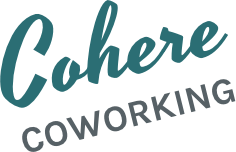
Photo by Gabriela Braga on Unsplash
Psychological capital was first developed as a branch of positive psychology—the study of optimal human functioning. Instead of focusing on how to cure mental illnesses, positive psychology focuses on how to build mental wellness. In 1999, management professor Fred Luthans applied positive psychology to the purpose of improving employee performance based on human behaviors in corporations. He was able to identify and define four key psychological constructs with measurable effects on both performance and well-being, hope, (self) efficacy, resilience, and optimism, known in conjunction as HERO. Not only do each of the four constructs improve these metrics individually, but in concert, they have a stronger relationship with performance and well-being than individually.
By cultivating hope, efficacy, resilience, and optimism, anyone can be a mentally stronger and more productive individual than they already are. Each of these constructs can be cultivated, but it can be difficult to improve them on your own. Remote employees may not get as much coaching from their management team as those who come into the office on a daily basis, and freelance workers without a management team are fully left to their own devices. The very nature of the coworking movement—structured around community, openness, collaboration, sustainability, and accessibility—lends itself to cultivating the four pillars of PsyCap, and enables members to find the HEROes within themselves.
Hope
Merriam-Webster defines the noun hope as “desire, accompanied by expectation of or belief in fulfillment” or “the expectation of fulfillment or success.” The concept of psychological capital adds an additional layer to this definition, specifying that the hopeful person has a desire and an expectation of fulfillment, as well as being able to see and evaluate the pathways that will lead to their fulfillment
Hope can be elusive when you are trying to solve a complicated programming problem from your chaotic kitchen or fuel your inspiration in an empty den. Joining a coworking community addresses both definitions of hope. Working alongside other motivated people is motivating, even when working in a virtual environment—it increases the desire to succeed. Having a community of diverse individuals ready to share advice, support, and useful resources also offers coworking members new pathways around roadblocks to success.
(Self)-Efficacy
The E in PsyCap’s hero represents the condition of self-efficacy. Self-efficacy refers to one’s belief that they can successfully complete a task or reach their goals. Someone with high self-efficacy not only believes in their ability to complete their goal but also believe that they can successfully readjust their course if needed to reach that goal.
Coworking communities improve self-efficacy by their collaborative natures. Cohere Coworking, for example, hosts cotivation sessions, small goal-oriented groups that meet once or twice a week. These groups speak directly to self-efficacy by not only providing accountability and moral support but also giving participants a chance to discuss specific barriers and get ideas on how to get past them.
Resilience
Resilience is the ability to bounce back and continue to be productive even after extreme setbacks or successes. This year has tested nearly everyone’s ability to bounce back. The hard questions and extreme circumstances just seem to keep coming. Humans are a resilient species, and a great deal of that resilience comes in the form of our social connections. Two of the strongest components that affect a person’s resiliency include both a sense of purpose and a strong social network.
For me, the accessibility of the community at Cohere has been an absolute blessing when it comes to bouncing back. No matter what life has thrown at me since I started at Cohere, financial upheavals, car accidents, fluctuating income, or a stressed teenager, someone was there. Whether in person or online there was always someone willing to listen, to give advice, sometimes just to get where I was coming from. The kind of support that can be found in a connected coworking community like Cohere is exactly the type of support needed to strengthen the construct of resilience.
Optimism
An optimistic person generally looks at the world through a positive lens. They don’t ignore negative experiences in their lives, but they do recognize those experiences as transitory and focus on the positive ones instead. They are able to cultivate a culture of appreciation around themselves and they don’t dwell on the past.
Cultivating optimism is all about shifting your focus to the positive and looking to the future, which is far easier to do with a few supportive friends and colleagues in your corner. Having a coworking space to go to and a community to interact with can increase your optimism by giving you a fresh perspective and helping you to see opportunities and silver linings you may have previously overlooked.
A recent state of remote work survey conducted by Mindedge/Skye Learning revealed that half of the respondents felt that working remotely had a negative effect on their emotional or mental health. It is taking a toll on all four pillars of PsyCap—hope, self-efficacy, resilience, and optimism. Their HEROes are weakening due to unclear schedules, distractions at home, and technical difficulties. The support of an open and accessible community of collaborative and motivated individuals may be exactly the type of sustenance that their inner HEROes need to survive.
Want to strengthen your inner HERO?
Are you looking to improve your PsyCap from home—in a digital format?
Sign up for one of our sliding scale virtual memberships today!
Cohere member Penny Leigh Sebring is an experienced freelance writer, neophyte speculative fiction author, and gatherer of information and imaginary friends.
